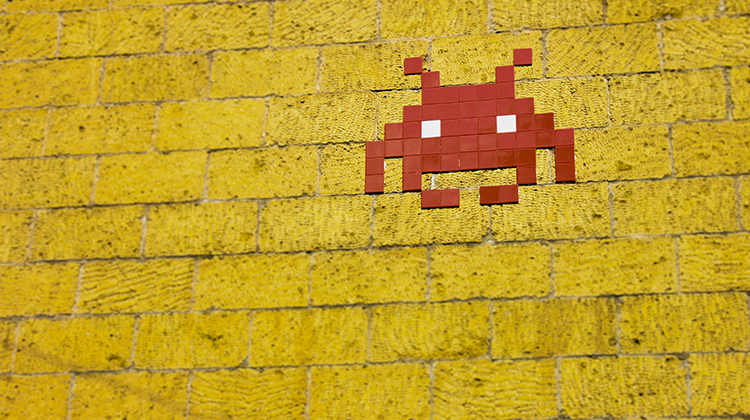The Video Game Device That's Getting Them Hooked

Video games are addictive and one device that video game designers use to keep you playing and paying are loot boxes where players usually spend real-world money to get random virtual items - weapons, cosmetics or ‘skins’. A loot box may or may not yield a reward though, introducing an element of chance.
Many experts are already calling for loot box buying to be regulated by existing gambling laws and a new study of more than 1400 adults who gamble and play online video games has found loot box buying is associated with real-world gambling, video gaming addiction, and other mental health issues.
The international research published in Computers in Human Behaviour brings new insights into the loot box phenomenon. Carried out in a collaboration between Flinders University, Nottingham Trent University, the University of Gibraltar, and the ELTE Eötvös Loránd University in Hungary – the study suggests that, at least to some extent, loot box buying shares similar mental health risk factors with other behavioural addictions.
Matthew Flinders Professor in Mental Health and Wellbeing Zsolt Demetrovics, co-author of the new study says, “Interestingly, tendency towards problematic gambling is similar in studies examining internet gaming disorder, which often has an association with comorbid problems including anxiety, depression and stress.”
While there are few previous studies of loot box buying and elevated or severe psychological distress, the online global study (73% male) measured the responses of regular videogame use, with 64% reporting they played videogames more than once a week. Of these, 96% of participants reported loot box purchases in the past 12 months, 41% doing so more than once a week and 12.9% four or more times a week.
Co-author Professor Mark Griffiths, director of the International Gaming Research Unit at Nottingham Trent University, UK says the result “may be relevant for clinical practice and for the implementation of effective policies when it comes to preventing problematic loot box buying.
“The data shows a clear relationship between depression and anxiety, found both as a precursor or as an outcome of gambling severity, and this may also be similar for loot box buying because, although weaker, anxiety and depression were both associated with riskier loot box buying,” says Professor Griffiths.
University of Gibraltar researcher Cristina Villalba-Garcia adds, “Although these findings should be interpreted with caution, we recommend that further research into these behaviours would ultimately be of great social and clinical relevance when it comes to minimising damage and regulating loot box buying under laws like those applied to gambling."
When considering loot box regulations, it Is important to understand the effects of opening/purchasing loot boxes on mental health and vice-versa, especially among more vulnerable people and at-risk users, researchers say.
“Behavioural addictions such as gambling and gaming disorders, compulsive sexual activity, problematic shopping and buying, and problematic use of social media deserve more clinical and public health attention,” say Professor Demetrovics and international colleagues in a separate article published in the American Journal of Psychiatry.
The rise of the Internet and availability of smartphones to young people have fuelled these addictions, which have been linked to poorer treatment outcomes for people with existing psychiatric concerns, they say.
The review article lists five kinds of addictive behaviours, including gambling, internet gaming disorder, compulsive sexual behaviour disorder, compulsive buying-shopping disorder, and problematic use of social media.
The Computers in Human Behaviour (Wiley) article, ‘The relationship between loot box buying, gambling, internet gaming, and mental health: Investigating the moderating effect of impulsivity, depression, anxiety, and stress’ (2025) by Cristina Villalba-Garcia, Mark D Griffiths, Zsolt Demetrovics and Andrea Czakó was first published in pre-print: 27 January 2025 https://doi.org/10.1016/j.chb.2025.108579
The American Journal of Psychiatry article, ‘Current Advances in Behavioral Addictions: From Fundamental Research to Clinical Practice’ (2024)’ by Matthias Brand, Zsolt Demetrovics, Daniel King and other co-authors was published on 11 December 2024 https://doi.org/10.1176/appi.ajp.20240092
Image by Francesco Ungaro